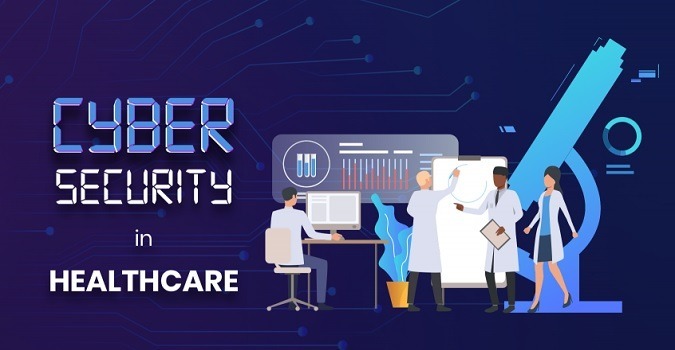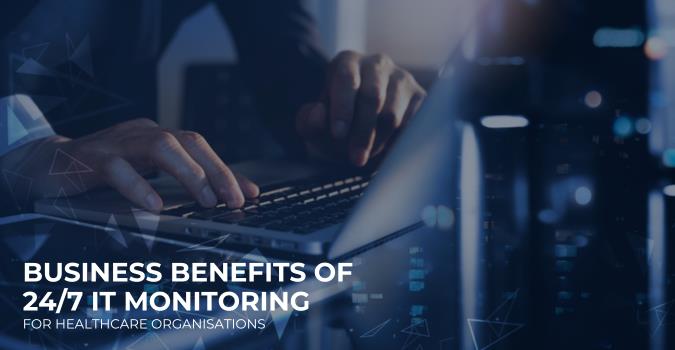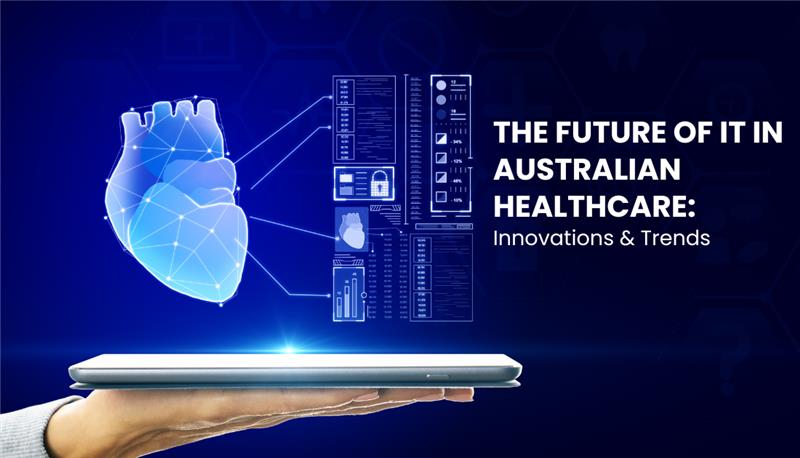Healthcare organisations rely on robust IT systems to manage patient records, facilitate telemedicine and support…

Cybersecurity in Healthcare: How to Stay Ahead of Cyber-Attacks in 2022?
Cybersecurity in healthcare involves the protection of medical information and devices from cyber-attacks, unauthorized access, and disclosure. Digitalized healthcare has a shining future ahead in 2022 with the latest innovations in technology. However, medical practices need to understand the importance of healthcare cybersecurity to avoid the drawbacks of increased technology usage in healthcare.
Cybersecurity in Healthcare
Cybersecurity in healthcare should not be neglected. HIPAA demonstrated in its journal that Australian medical practices saw a 25% rise in cyber-attacks in 2020 with 642 big cyberattacks reported and 29 million records infected.
The good news is hospitals and healthcare centers in Australia have started to take action. They are now more aware of cybersecurity but they need to convert this awareness into correct action urgently. A professional cybersecurity expert can help to solidify healthcare network security. The organizations taking cybersecurity services have significantly improved the security of their medical devices and patient’s data.
Assessing cybersecurity vulnerabilities is crucial
Cybersecurity Assessment is the first and the most fundamental step to secure your healthcare data. Your assessment should focus on these simple questions:
- Define your system
- Find out where the vulnerabilities lie
- Test vulnerabilities
- Make zones and conduits
- Assess the threats and document the procedure
The problem many healthcare organizations and clinics face at this point is the high costs. All the steps mentioned above and then the solutions will require a lot of money. Healthcare systems having an average budget can’t afford it. Many medical practices turn to hiring cybersecurity service providers to get full-fledged support at a reasonable monthly fee.
Implement Solutions to those vulnerabilities
After finding out the vulnerabilities, you need to take action urgently as cybersecurity concerns can’t wait. As a medical practitioner/healthcare provider, cybersecurity is not your specialty. You should consider whether you will be able to apply the cybersecurity solutions in some days or weeks.
If you can’t figure out the process properly, it’s better to take help from a reliable cybersecurity company. But don’t forget to ask these two queries from your cybersecurity services provider.
- Does your company manufacture the software/device it’s trying to secure?
- Does your company have healthcare expertise?
These two questions are important to decide whether you should go with a Managed IT services provider or not.
Cybersecurity Services with OT Expertise
Cybersecurity in healthcare – you should ask your potential cybersecurity partner about their expertise in operational technology (OT). A large number of cybersecurity experts are more skilled in the realm of IT than OT.
From room monitoring controls to moisture and air quality sensors, healthcare practices are filled with tons of connected OT machines. These OT devices could provide hackers an entry into a network. Cyber attackers often use these ignored OT machines.
Hence, your medical IT services providing company should possess knowledge and skills regarding OT devices. Otherwise, they will not be able to improve half of the networks. Because IT and OT networks work integrated.
Security Assistance Level 1 compliance
If you don’t know what it means, that’s fine. For this reason, we recommended taking services from an experienced cybersecurity agency and ensuring that your vendor understands what it is.
Data management policies and structuring system cruciality have different requirements for healthcare than regular organizations. Medical practices need to meet these particular requirements. To meet them, ask your services provider to try to attain a minimum security Assistance Level 1 compliance to the IEC62443 standard.
Continuous Monitoring
To comply with the strict guidelines set by HIPAA, you should monitor your system round the clock. Your cybersecurity services provider can easily do that as they are doing it for many clients. Cybersecurity programs ask for constant and full attention. Hackers are planning cyber-attacks every minute of the day.
It’s impossible to hire an in-house team to observe and counter every climb of privileges. Plus, your staff can’t review every amendment of an important file. What you can do is to become a partner with a managed services company and call them whenever you need. Their professionals can visit your hospital if required and take the situation off your staff’s shoulders.
Conclusion
In today’s electronic world, cybersecurity in healthcare and protecting information is vital for the normal functioning of organizations. Many healthcare organizations have various types of specialized hospital information systems such as EHR systems, e-prescribing systems, practice management support systems, clinical decision support systems, radiology information systems, and computerized physician order entry systems.
If you think that your in-house IT team can’t focus on cybersecurity steadily and methodically, MedicalIT.Services is here for you. Call us today to get specialized support for the cybersecurity of your medical devices and patients’ data.
Also Read:



